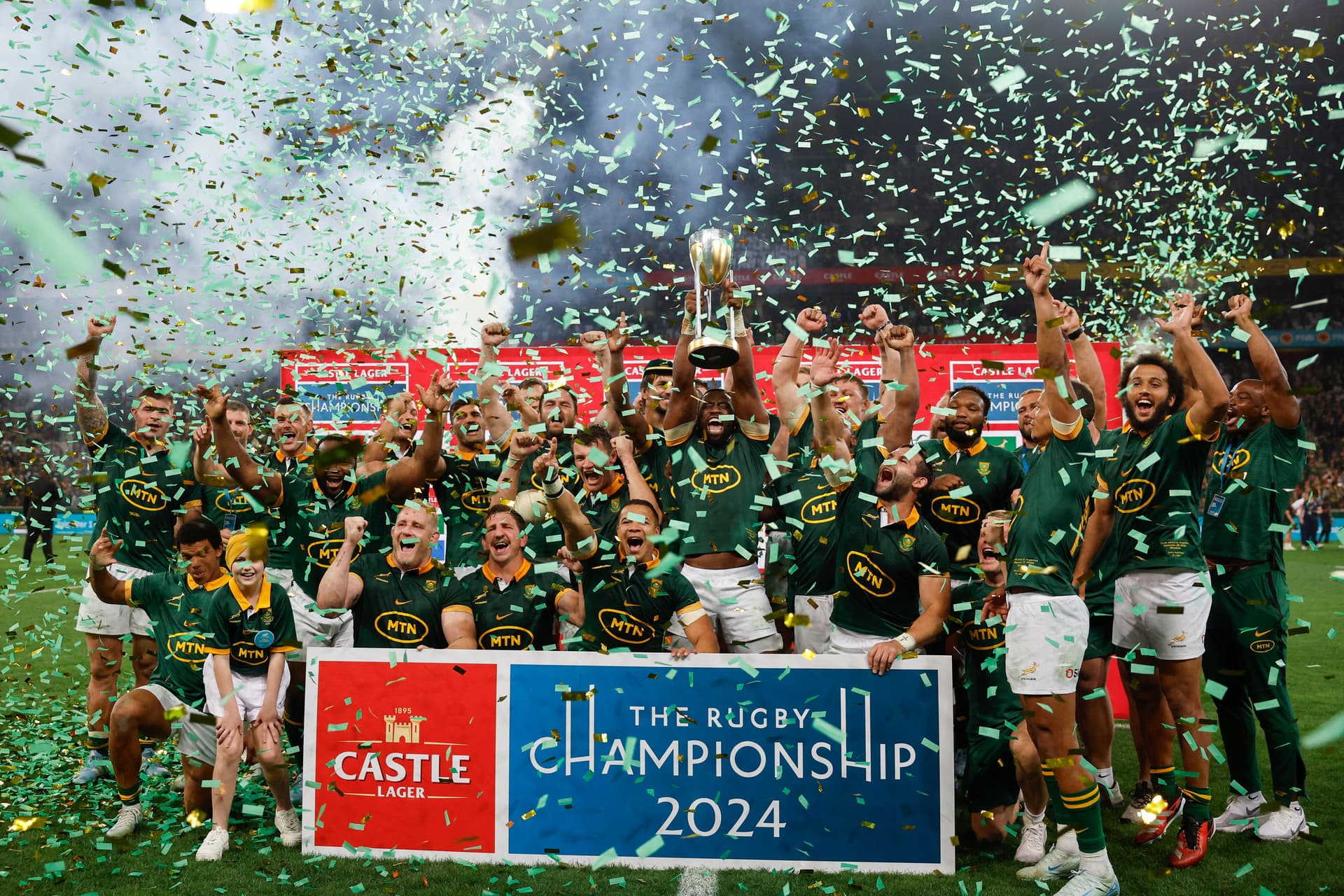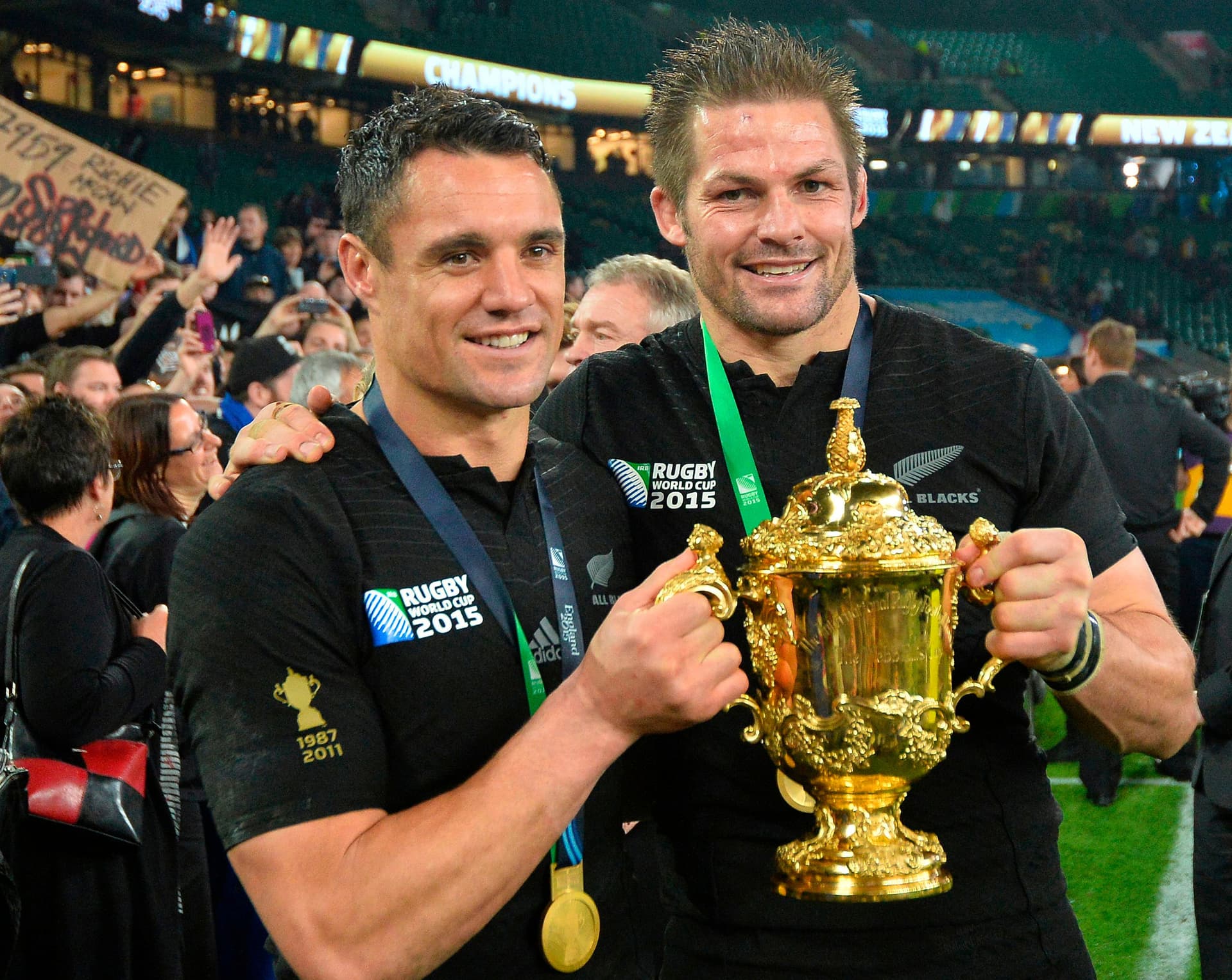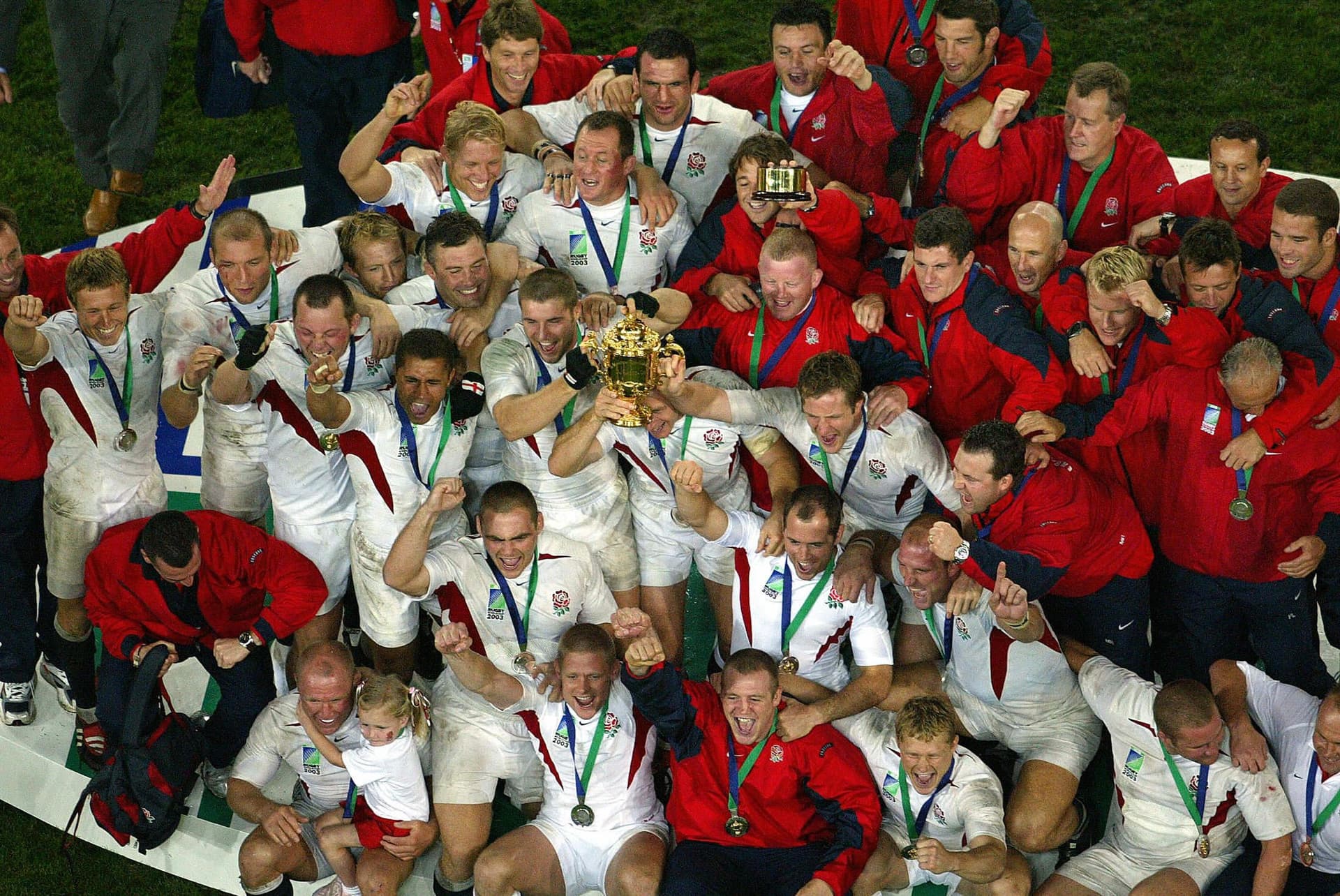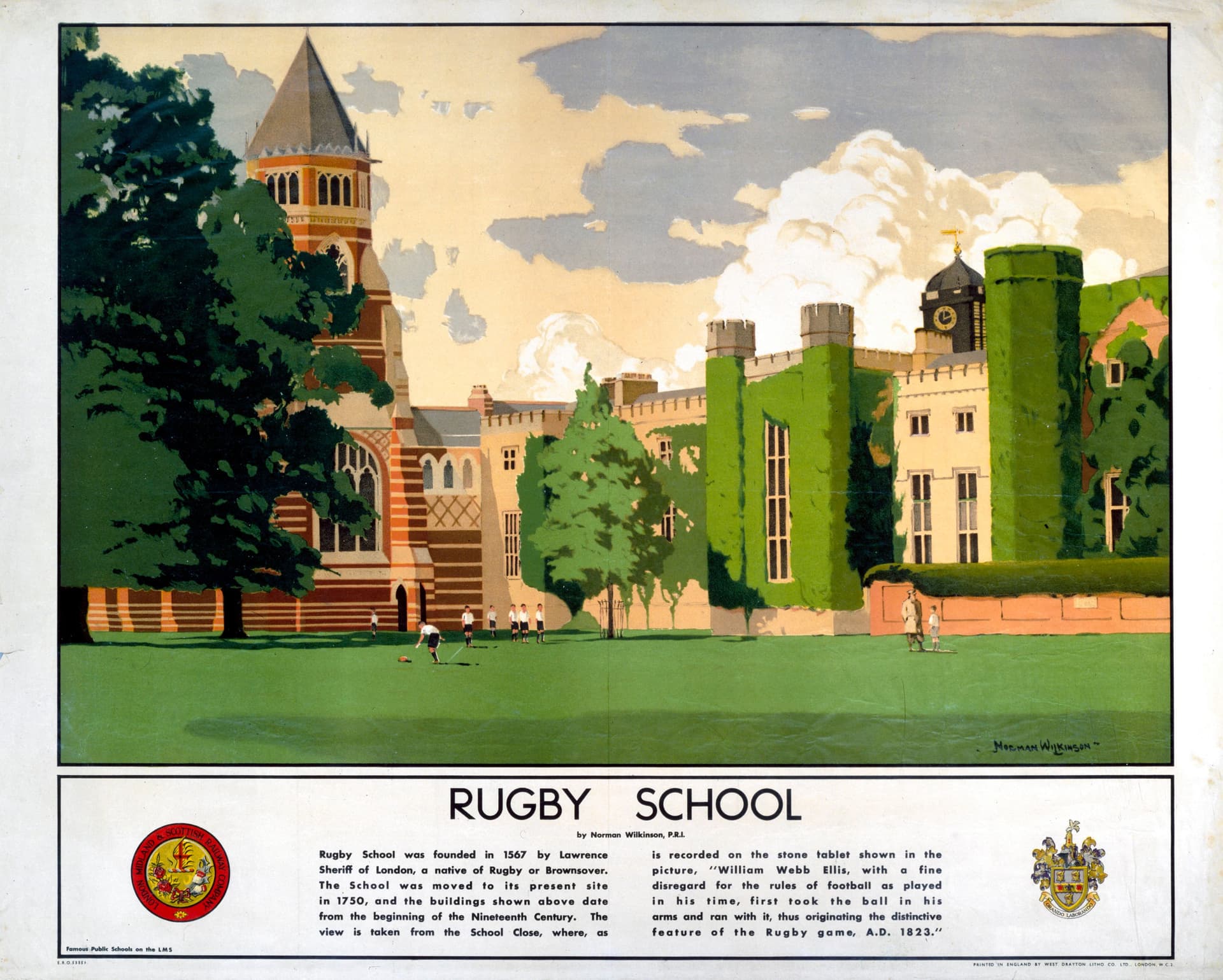Rugby
What is the Biggest Rugby Union Stadium in the World?
Rugby Union has some of the most iconic stadiums of any sport. SportsBoom profiles the biggest rugby stadium in the world, where it is located, its capacity, and its history.

Twickenham Stadium//Getty Images
Twickenham is the biggest rugby union stadium in the world. However, due to a new sponsorship deal with the German company, Twickenham is now officially called Allianz Stadium. The iconic stadium has a capacity of 82,000, the most of any predominantly rugby union stadium in the world. Although Allianz Stadium is principally a rugby union ground, it has, however, hosted Sevens Rugby, rugby league, and NFL matches since 2000.
Allianz Stadium is located in the London Borough of Richmond upon Thames in southwest London, England. The stadium is commonly referred to as ‘Rugby HQ’ (Head Quarters) or the “Home of Rugby”. English rugby supporters, players, and the media also commonly call the famous ground “Twickers”.
On August 5, 2024, The Rugby Football Union (RFU) announced the new long-term partnership with Allianz. As part of the new sponsorship deal with the German multinational financial services company, the historic ground changed its name to Allianz Stadium. According to Forbes, Allianz is the world’s largest insurance company and the largest financial services company in Europe. Allianz is currently ranked as the thirty-first richest company in the Forbes ‘Global 2000’ list in 2024.

South Africa's flanker Siya Kolisi lifts the trophy//Getty Images
The Largest Capacity Rugby Match
First National Bank Stadium (FNB), more commonly known as FNB Stadium, is the biggest multi-purpose stadium in the world. In 2010, it hosted its first-ever rugby union match between South Africa and New Zealand. The ground recorded the largest capacity crowd (94,716) for an international rugby union Test match.
South Africa’s turbulent history and the hatred of the national rugby team by black South Africans during apartheid, made this an historic occasion. The stadium was redeveloped for the 2010 FIFA World Cup, but the South African Rugby Union (SARU) decided to stage a Test match in Soweto rather than the unofficial home of South African rugby, Ellis Park.
It proved a hit, as 94,716 fanatical rugby supporters filled the famous stadium. The All Blacks edged the Springboks in a pulsating Tri-Nations clash. They scored two tries in three minutes to win 29-22. The stadium hosted New Zealand again in the 2012 Rugby Championship. The All Blacks defeated the Springboks 32-16 in front of 88,739 rugby supporters. In 2013, the Springboks got their first win at FNB Stadium when they thrashed Argentina 73-13 in front of 52,867 people.
FNB Stadium is the home of Kaizer Chiefs. The ground is also known as “Soccer City”, and is also the de facto home ground for Bafana Bafana, the South African national football team. The sports ground has been officially known as the FNB Stadium since it was opened on October 7, 1989. It is located in the township of Soweto in Johannesburg, South Africa. The ground’s capacity is 94,736.
However, the largest-ever officially recorded crowd was for a local South African football derby between Kaizer Chiefs and Orlando Pirates. Chiefs versus Pirates is one of the biggest football rivalries in the world. It is known as the “Soweto Derby”. On August 1, 2015, 94,807 Chiefs and Pirates football fans packed into Soccer City for the Carling Black Label Cup.

Dan Carter and Richie McCaw//Getty Images
The History of Twickenham
Twickenham has been the home of English rugby union since 1907. William Cail was President of the Rugby Football Union (RFU) in the early twentieth century and an influential figure in the RFU. Cail was instrumental in developing plans for a new national rugby stadium at Twickenham after sold-out Test matches against New Zealand and South Africa at Crystal Palace in December 1905 and 1906, respectively.
Twickenham Stadium hosted Rugby World Cup (RWC) matches in 1991, 1999 and 2015, including the finals in 1991 and 2015. Australia beat England 12-6 in the 1991 World Cup final. However, South Africa thumped England in the 1999 quarter-final at Stade de France in Paris.
Moreover, the Red Roses crashed out of their home tournament in the group stages in the 2015 RWC. Australia battered France 35-12 in the 1999 RWC final at Twickenham. The Wallabies were, however, beaten 34-17 by the All Blacks in the 2015 tournament. The first rugby league match was played at Twickenham in 2000.
In 2001, the stadium began hosting the London leg of the World Rugby Sevens Series. Furthermore, in 2016, Twickers hosted its first American Football game between the New York Giants and the Los Angeles Rams. Two more games were played in 2017 before the London NFL Games were moved to Tottenham Hotspur Stadium in North London.
The sideline had to be increased for the large numbers of players, coaches and medical staff on NFL teams meant Twickenham could not be at its 82,000 crowd capacity. Capacity for Twickers was just over 74,300 people for the three NFL games. The stadium is also used for music events. Twickenham has hosted 29 concerts since 2003.

English players celebrate with the William Webb Ellis Cup//Getty Images
World Rugby Museum
The World Rugby Museum is a museum dedicated to English and world rugby. It is located inside Twickenham (Allianz Stadium). The rugby union museum covers the global game, not only English rugby union history. The museum recaps the stories of the origins of the game at Rugby School, William Webb Ellis and Richard Lindon.
The museum is modern, using interactive display techniques to tell different stories of rugby union. It includes a shrine to celebrate England's 2003 Rugby World Cup triumph in Australia. The museum has an ever-changing and rolling programme of special exhibitions.
These exhibitions cover a range of topical issues and offer an opportunity to display some of the unique and rare items in the collection. There is even a display of an England rugby union jersey from the first-ever rugby union international between England and Scotland at Raeburn Place, Edinburgh, in 1871.

Post of a view of Rugby School//Getty Images

Kaylan Geekie is a sports fanatic. He attended Durban High School before moving to Scotland, where he lived for 15 years. During his time in the United Kingdom, Kaylan graduated with a first-class BA Honours Degree in Sports Journalism at the University of the West of Scotland. Kaylan worked for nine years as the Match-Day Editor of SuperXV.com, reporting on Super Rugby, The Rugby Championship, the 2015 Men's Rugby World Cup and the 2017 British & Irish Lions series for the website.